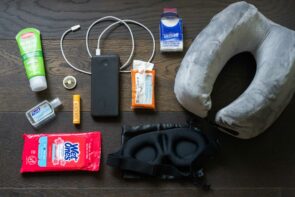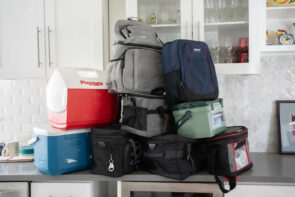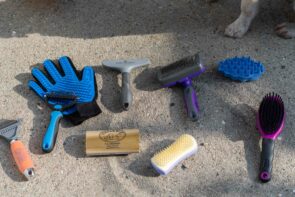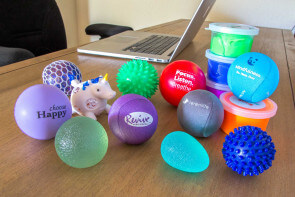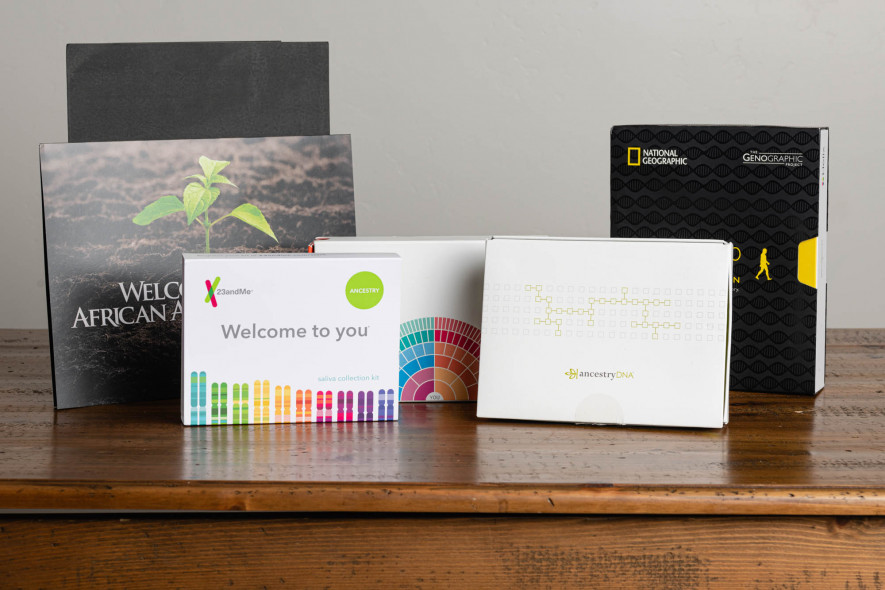
The Best DNA Tests
We spent 60 hours on research and conducted a year-long focus group with a test panel of individuals from five distinct haplogroups. We found that 23andMe is the best DNA test since it offers the most user-friendly interface for those curious about their ethnic background. There are three distinct types of tests for genealogy, and 23andMe offers all three tests in one. This means that you’ll receive an ethnicity estimate and can trace both paternal and maternal lineage. On the other hand, if you’re most interested in making connections with cousins you’ve never met, AncestryDNA connected our testers with the most living relatives.
We spent 60 hours on research and conducted a year-long focus group with a test panel of individuals from five distinct haplogroups. We found that 23andMe is the best DNA test since it offers the most user-friendly interface for those curious about their ethnic background. There are three distinct types of tests for genealogy, and 23andMe offers all three tests in one. This means that you’ll receive an ethnicity estimate and can trace both paternal and maternal lineage. On the other hand, if you’re most interested in making connections with cousins you’ve never met, AncestryDNA connected our testers with the most living relatives.
Table of contents
- Compare the five best DNA tests
- 1. Top pick: 23andMe
- 2. Runner-up: AncestryDNA
- Other finalists we tested
- How we selected finalists to test
- How we tested
- Privacy risks
- Important features to consider
- How hobbyist DNA tests work
- The bottom line
Compare the five best DNA tests
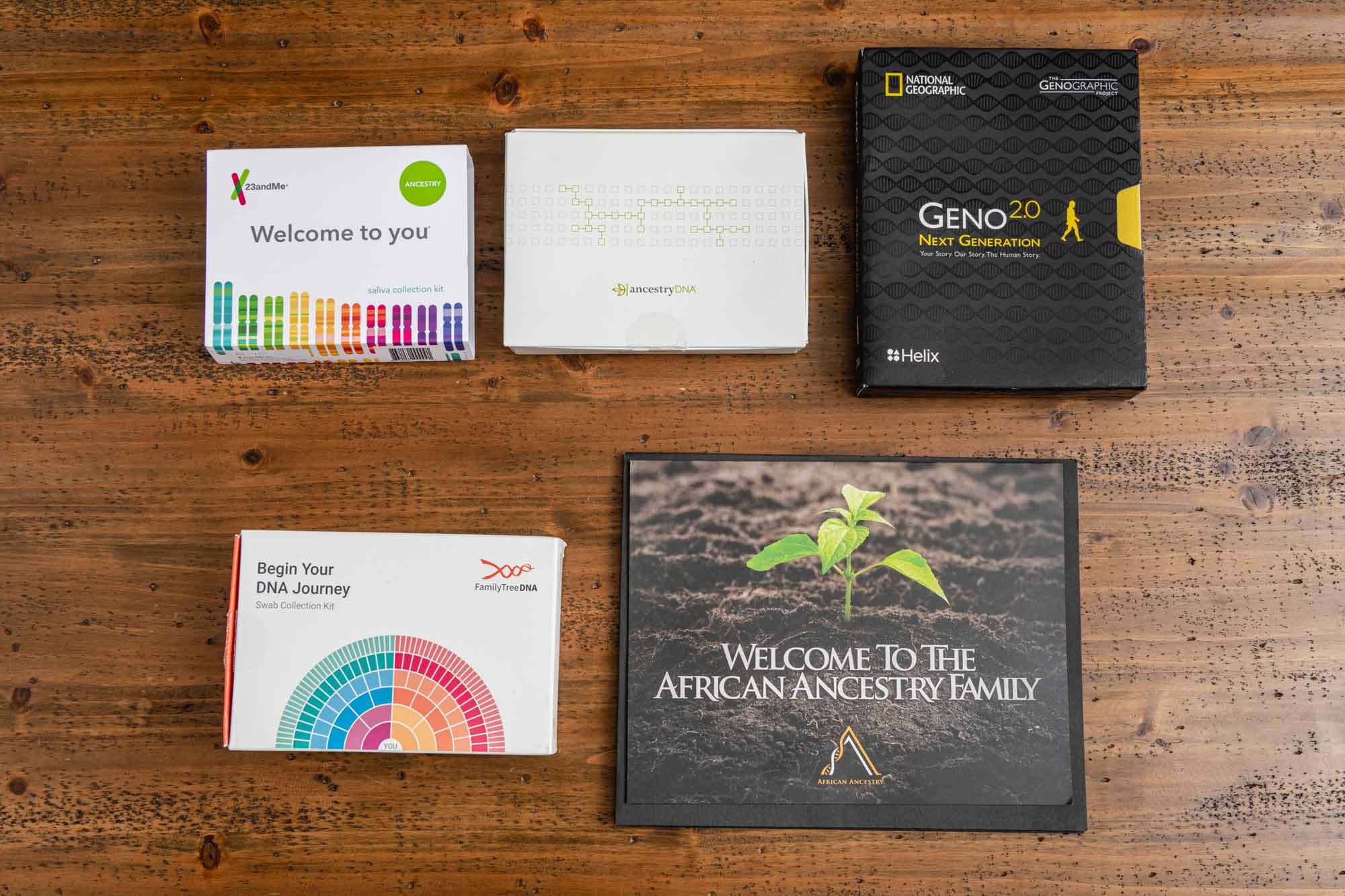
| Product | Easy to Use | Easy to Interpret Results | Haplogroup | Country Level Data | Migration Paths |
|---|---|---|---|---|---|
| 1. 23andMe | ★★★★★ | ★★★★★ | ★★★★ | ★★★★ | ★★★★★ |
| 2. AncestryDNA | ★★★★★ | ★★★★★ | ★★★★★ | ★★★★★ | ★★★★ |
| 3. Helix National Geographic | ★★★★ | ★★★★ | ★★★★ | ★★★★ | ★★★★★ |
| 4. FamilyTreeDNA | ★★★★ | ★★ | ★★★ | ★★★★ | ★★★ |
| 5. AfricanAncestry | ★★★★ | ★★★★★ | ★★★★ | ★★★ | ★★★ |
1. Top pick: 23andMe
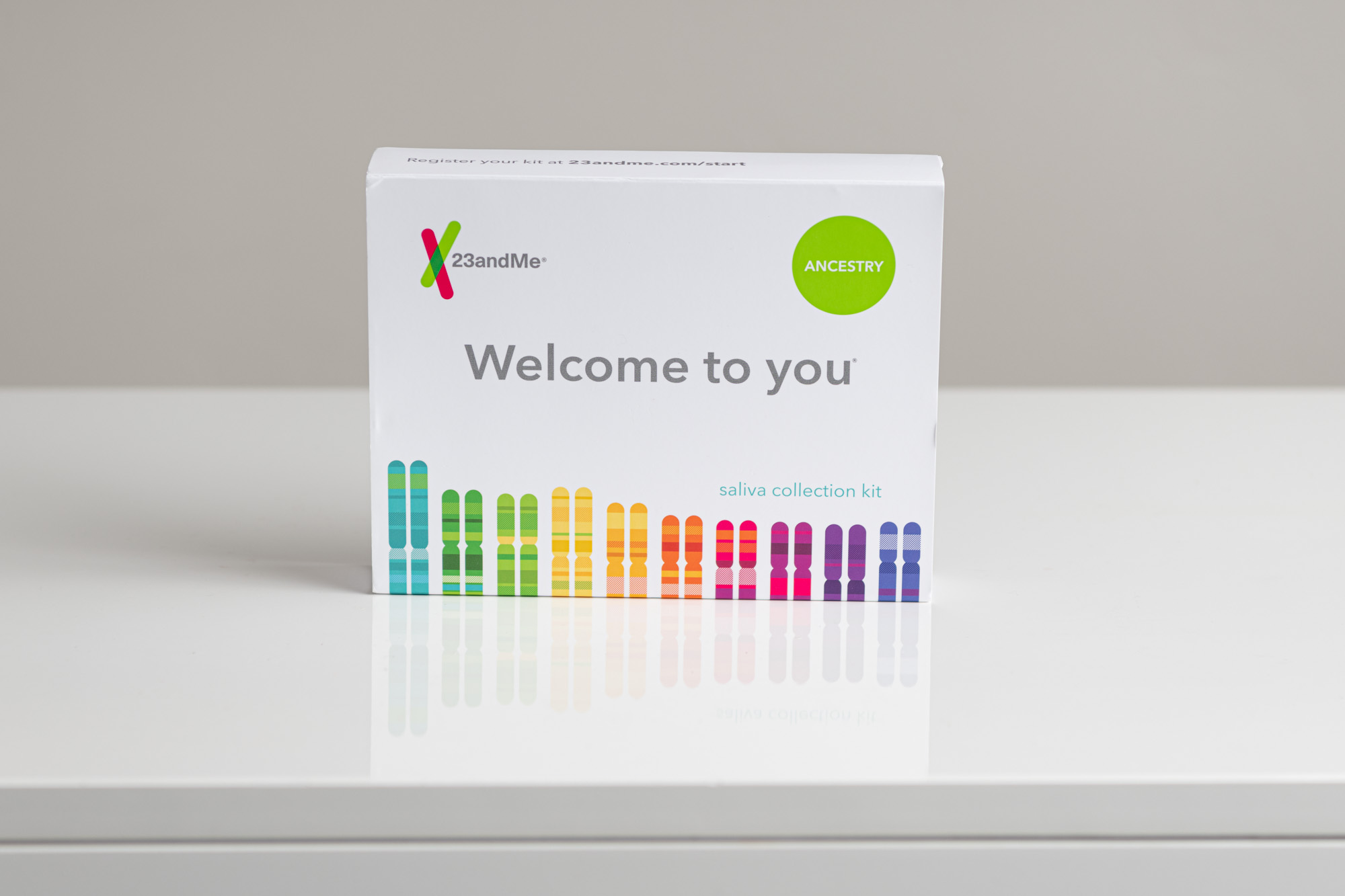
Our testers rated 23andMe and AncestryDNA similarly for being easy to register, complete the test and understand the results. However, they reported that 23andMe gave more detail in terms of haplogroups, country level data and migration paths. Our panel also found that 23andMe’s website was the easiest to read. “I knew where my ancestry was from based on the maps and graphs,” stated one tester.
All of the companies delivered results within 4-6 weeks, although the 23andMe results arrived before the others.
23andMe tests for more than 1,500 regions, while AncestryDNA tests for about 500 regions. More regions are not necessarily better, since the DNA matching specific genetic markers from these areas only gives you an estimate of which region you may come from. The statistical confidence gets lower when the results are more specific. However, our testers appreciated the level of detail they received.
The Ancestry + Traits service is an additional add-on service from 23andMe. It costs $99 and includes your ancestry composition, maternal and paternal (for males only, since it is traced through the Y chromosome) haplogroups and traits reports. The traits report tells you about your likelihood of having certain characteristics, such as curly hair or cheek dimples. You can even see how DNA affects your taste preferences in terms of sweet or salty and ice cream flavors.
While we didn’t order the health and wellness tests from 23andMe, the company does provide detailed reports for an additional fee. With the Health + Ancestry service, you can also find out if you have a genetic risk for certain illnesses.
While 23andM3 is a member of the Future of Privacy Forums’s Best Practices, a recent partnership with GlaxoSmithKline has raised privacy concerns for many consumers. The goal of the collaboration is to leverage the genetic and phenotypic information in 23andMe’s database to potentially find new treatments and cures for conditions such as Parkinson’s disease. The company press release states that “the continued protection of customers’ data and privacy is the highest priority for both GSK and 23andMe.”
Key takeaways:
- 23andMe offers a bundled autosoma, broad Y-DNA and broad mtDNA test for one price.
- You can purchase their health and wellness screen separately (or as part of a combined package) if you wish to test for certain hereditary diseases.
- With a breakdown of 1,500 regions (twice that of AncestryDNA), 23andMe pinpoints your ancestry to a more precise locale.
- 23andMe has the easiest-to-read website, which would appeal to the greatest number of consumers interested in ancestry estimates.
2. Runner up: AncestryDNA
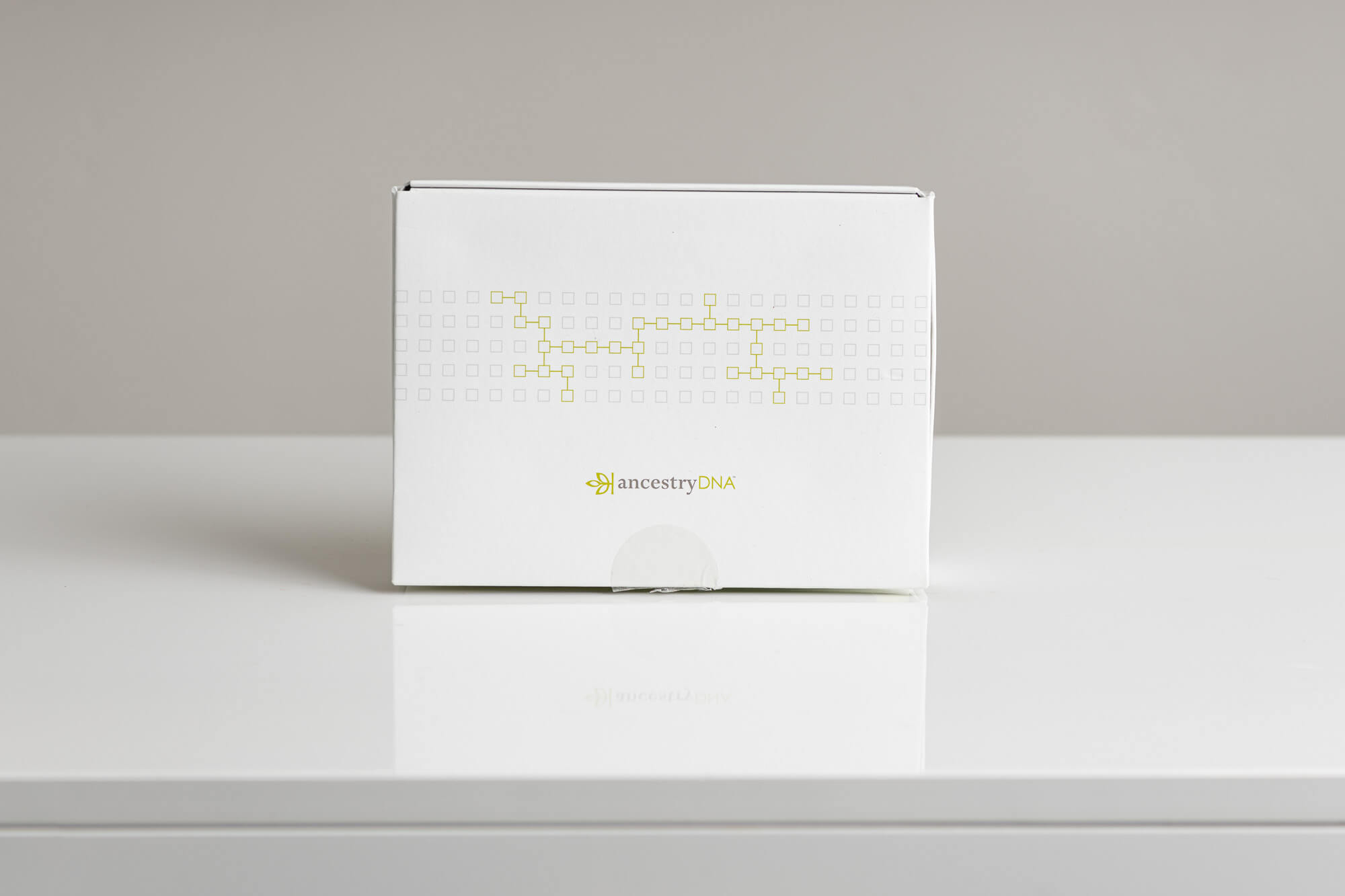
If you are searching for a strong genealogical community, AncestryDNA is your best bet. Our testers rated AncestryDNA rated very close to 23andMe in terms of being easy to understand, describing the test as “pretty easy and fun.”
AncestryDNA has the largest database of all the direct-to-consumer DNA testing companies, and if you opt-in to its family-matching service, it provides the largest number of matches. AncestryDNA’s database is approximately 15 million compared to the 1 million potential matches in 23andMe’s database. However, it doesn’t provide as much detail about how you are related to your distant living relatives as 23andMe does.
AncestryDNA only offers autosomal testing, so it gives you information about the last five generations in your family history. It does not offer options for Y-DNA or mtDNA tests, which means that it doesn’t track your paternal or maternal lineage or give you information about your ancient ancestors and the migration paths they took.
Best for Genealogy: AncestryDNA
Since Ancestry has a database that is 15 times larger than its competitors, there is a greater chance of being connected with more living relatives. You can also (separately) purchase a subscription to explore Ancestry’s record collections and organize your family tree online.
The AncestryDNA autosomal test is $99, and you can purchase the AncestryDNA + Traits test (with 26 personal traits such as eye color, hair curl and taste perception) for $119. While the basic AncestryDNA test costs the same amount and provides less information than 23andMe, you are paying for a stronger likelihood of more relative matches.
If you are interested in genealogy, you can combine the information gleaned in your ethnicity estimate with an Ancestry subscription.
An Ancestry subscription is purchased separately, and is not necessary for access to AncestryDNA results. Ancestry subscription prices start at $24.99 a month and give you access to Ancestry’s family trees and records for even more insight into your genealogy and origins. This means you can explore all of Ancestry’s U.S. record collections (such as birth, death, marriage and census records), connect with other Ancestry members and organize and preserve your family tree online.
Key takeaways:
- If you want to find relatives through a family-matching service, AncestryDNA has the largest database of potential matches.
- AncestryDNA focuses on ethnicity and family-matching and does not offer information about ancient ancestry or track paternal and maternal lineage independently.
- While not necessary for access to your AncestryDNA results, an Ancestry subscription gives you access to genealogical records for a more accurate understanding of your recent family history and more detailed information about common ancestors.
Other finalists we tested
Helix National Geographic (Discontinued)
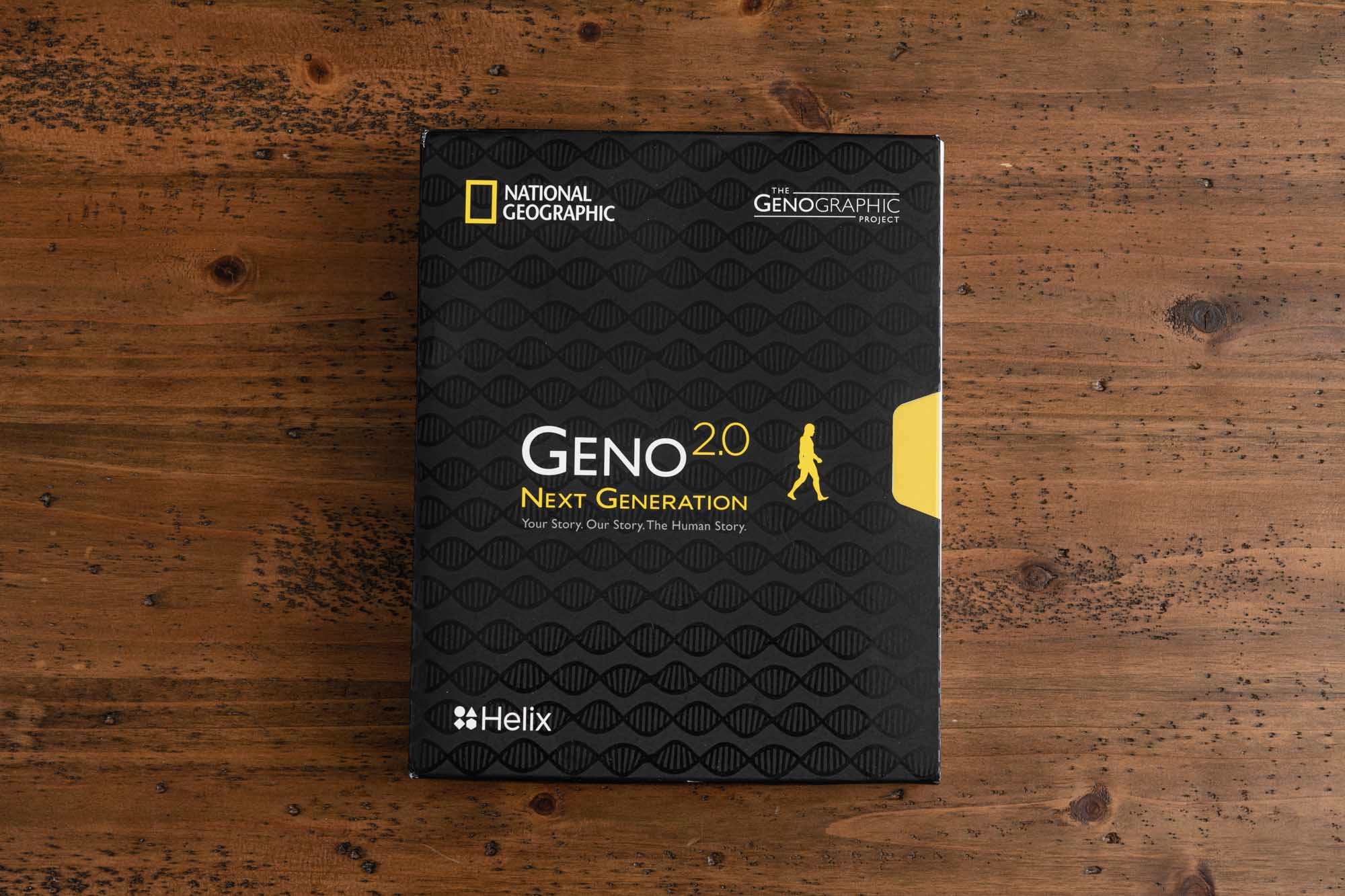
The Genographic Project was launched as a research project in collaboration with scientists and universities around the world with a goal of revealing patterns of human migration. Since 2005, nearly one million people have participated in the project.
National Geographic announced in August 2019 that the public participation phase of this research project has ended. If you sent in a kit for processing before December 31, 2019, you can access your results until June 30, 2020. It is recommended that you print your results prior to the end of June as they will not be available on the website or elsewhere.
National Geographic partnered with Helix to process the DNA samples. Users will retain their Helix accounts and Helix will retain customer saliva samples and information resulting from sequencing of the user’s DNA per the terms of the applicable Helix privacy policy.
Our panel of testers gave mixed reviews of Helix National Geographic’s reports. Some found them difficult to understand and others appreciated the level of detail. For example, one tester stated that the National Geographic test had the most “interesting, in depth information,” while another tester reported that they “still don’t fully understand” the results.
The National Geographic test provides fun tidbits that make for great conversation starters. For example, they list celebrities or historical figures that could be distant relatives.
Your data is sequenced through Helix, and it then tests autosomal, maternal and paternal haplogroups.
FamilyTreeDNA
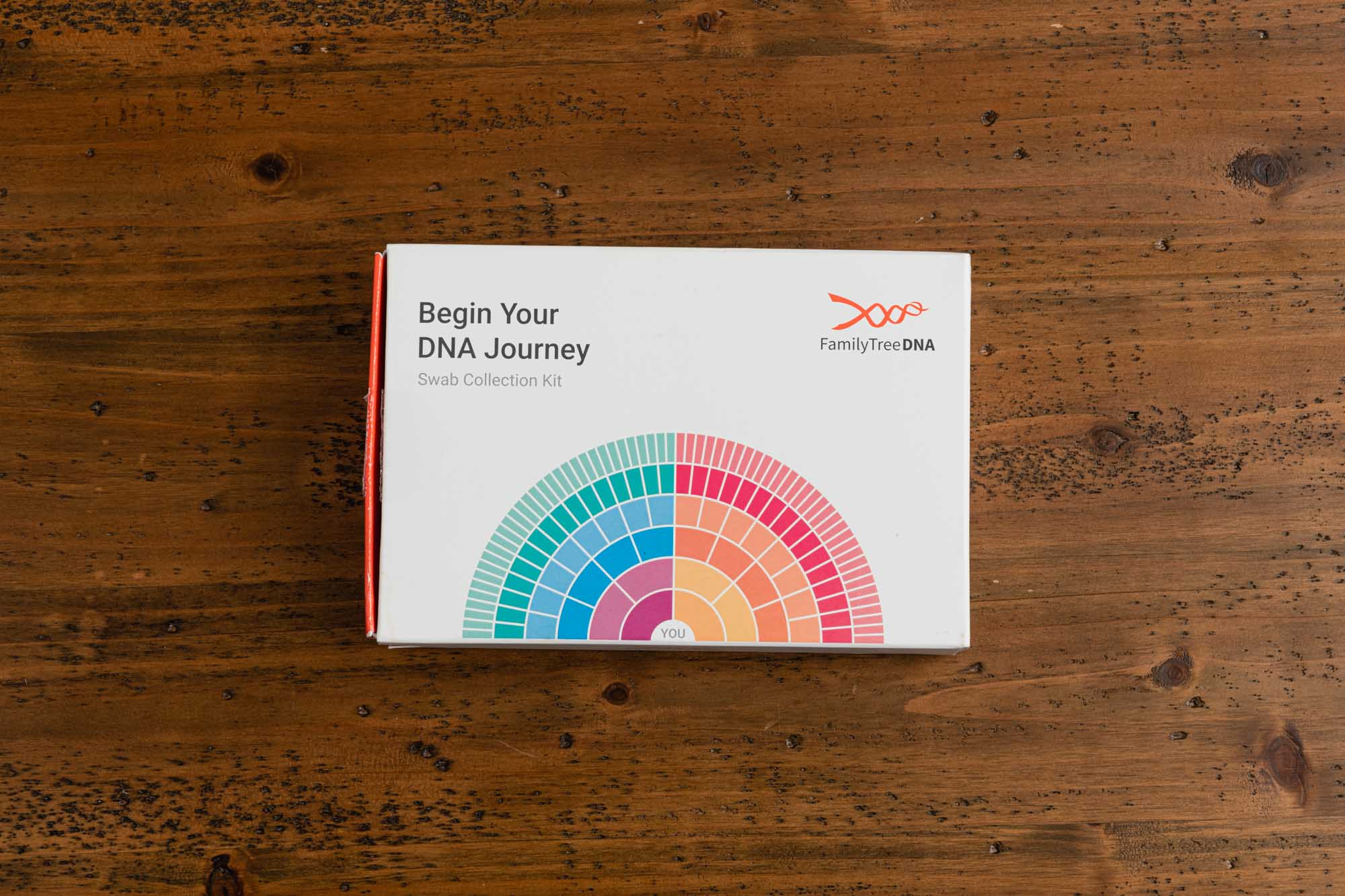
FamilyTreeDNA offers the most details of any of the tests we ordered, but it received the lowest score overall because the results were difficult to read. As one tester explained, “I felt like I needed a refresher on biology to read this website sometimes. This could be useful for someone who wants to map out their whole genetic code, but not for the everyday person who just wants to know their ancestry.”
Another tester said simply, “I still don’t understand the scientific breakdowns.”
FamilyTreeDNA prices are based on the type of test: $79 for an autosomal DNA test, which is comparable to AncestryDNA’s basic test for $99. For maternal or paternal haplogroups, however, the prices are much steeper: the Y-DNAtest starts at $169, and the mtDNA test starts at $199. Keep in mind that 23andMe offers all three of these tests for only $99.
African Ancestry
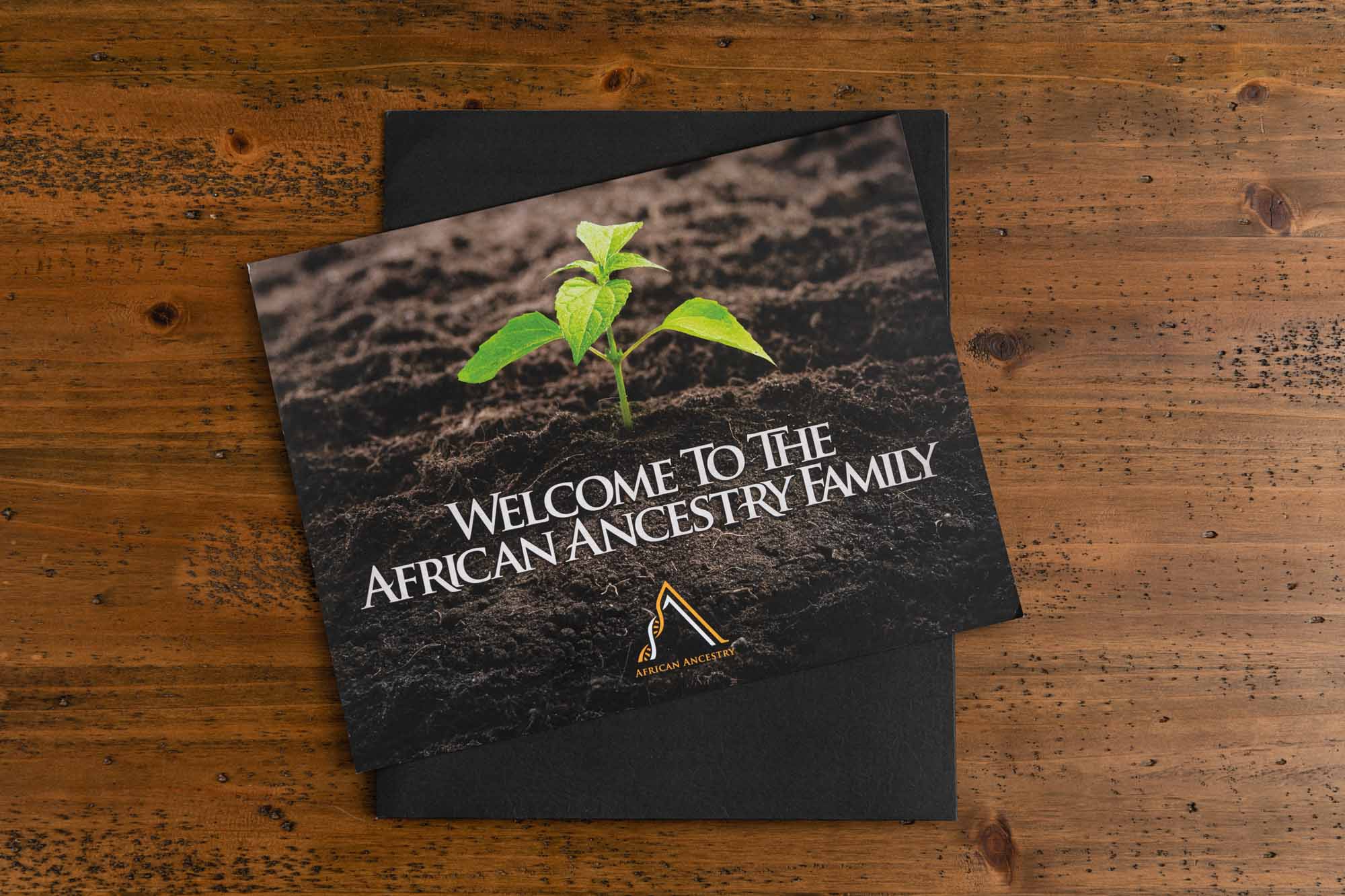
African Ancestry is the highest priced DNA test we considered as a finalist, but it also offers a unique selling point. The company claims to have the most comprehensive database of indigenous African genetic sequences. Their database includes over 30,000 maternal and paternal lineages from more than 30 countries and several hundred ethnic groups.
Ancestry tests such as 23andMe and AncestryDNA will trace your lineage to Africa, but African Ancestry places your ancestry in a present-day country or region in Africa. They may also be able to tell you the particular ethnic group with which you share maternal or paternal ancestry. For example, Ancestry.com gave one of our testers a breakdown of 53% African, while African Ancestry was able to provide him with a Certificate of Ancestry declaring that he shares maternal genetic ancestry with Temne people living in Sierra Leone.
The price for the MatriClan (maternal heritage, for men and women) or the PatriClan (paternal heritage, for males only) is $299, making it significantly higher than other services we tested.
The results from the African Ancestry test took significantly longer to arrive than any of our other finalists and is the only company to provide a paper copy. All of our other finalists used a digital platform. Our tester pointed out that having a digital platform has certain benefits: “I still get new updates of new family members. Having a digital platform is a really nice thing.”
How we selected finalists to test
Although we often consider consumer ratings, the expectations versus reality of a hobbyist DNA test can lead to disappointed consumers. Results are not definitive because each DNA-testing company estimates your ancestry by comparing your ancestry informative markers (AIMs) with markers most frequently associated with different populations in their proprietary database.
The larger the database, the more accurate and detailed your results will be. However, none of the DNA-testing companies we tested share their proprietary data, and their methodologies aren’t verified by an independent group of scientists.
Since we were unable to verify accuracy, we chose to focus on selecting services that offer security. When submitting your DNA sample to a for-profit company, you probably have questions about privacy. We discuss this in further detail in our privacy risks section below, but it’s important to know that some companies share your genetic information with third parties including law enforcement agencies, pharmaceutical companies, public academic institutions and nonprofit research groups.
A 2008 law called the Genetic Information Nondiscrimination Act prevents health insurance providers from using the results of a genetic test to deny coverage or charge higher premiums. However, the act does not apply to companies with fewer than 15 employees.
Since identity security is such a large concern, we only selected companies who participated in the release of the Future of Privacy Forum’s Privacy Best Practices for Consumer Genetic Testing services.
However, since our initial testing began in 2018, Family Tree DNA, one of the companies we chose to test, revealed an agreement with the FBI that doesn’t line up with FPF’s best practice guidelines and is no longer considered a supporter.
Biomedical testing
Health DNA tests (or biomedical tests) can predict your risk of developing certain diseases by looking at gene variants in your code. Companies such as Helix help consumers to use their genetic information to potentially make better choices for their health in terms of diet, sleep and fitness. For example, wellness insights can give you a better sense of how caffeine will affect you.
However, there are unknown risks about how the data you provide for-profit DNA testing companies will be used by third parties (for example, by insurance companies in the underwriting process) or the company’s genetic testing laboratory. Additionally, DNA testing companies can change their privacy policies with no notice to current customers. FamilyTreeDNA even quietly allowed the FBI access to their database without disclosing this fact to its users.
Additionally, the results can be hard to interpret without the aid of a doctor or geneticist. While consumers may be able to protect themselves if they are at risk for certain diseases, such as Alzheimer’s, it can be difficult to understand what the genetic markers actually mean. Results could be misleading or overwhelming, so many geneticists recommend working with your doctor to interpret genetic health tests. After considering all these factors, we chose not to participate in biomedical testing options.
How we tested
To determine which companies provided the most detailed results — especially to those of non-European populations — we had five different testers send their DNA samples to the five companies we narrowed down as finalists. We chose testers with known geographic origins (based on family history) from distinct haplogroups: European, African, Native American and Asian.
We also included one Latino tester, as individuals from Latin American countries have different profiles of genetic ancestry determined by the country’s unique interactions with other populations . According to Science Direct, “Latinos across the Americas have differing proportions of Native American, African and European genetic ancestry, shaped by local historical interactions with migrants brought by the slave trade, European settlement and indigenous Native American populations.”
We selected testers from different haplogroups to compare (through the results) the diversity of the databases of our finalist DNA companies. We ordered five kits from each company and then met with our five testers to:
- Activate their kit online by registering with their personal information
- Take a swab or spit sample
- Mail the sample back to each company (each kit came with a prepaid box for shipping)
Ease of translating results
After 4-6 weeks, testers began to receive their results via email. We had each tester answer a questionnaire on how easily they were able to translate results and on the detail of the information they received. They ranked each site on a scale from one to five (five being best) and answered the following questions:
- Were the results from each company similar?
- Did any company provide drastically different results than the others?
- Rate each company on ease in translating and understanding results
- Rate each company on how specific the results were (for example: too broad, giving haplogroup only, country level data, migration paths)
All of our testers reported that the results were similar across the board. Our tester who self-reported as Filipino, Chinese and Spanish reported that 23andMe had more variation and breakdown of her Chinese ancestry: “They informed me that I was 6% Mainland Chinese and also 6.5% “Broadly Chinese,” which means that I could’ve had other ancestors that were Chinese but who also traveled elsewhere in Asia in the last 40,000 years.” The other tests simply told her that her ancestors were from Southeast Asia.
We averaged our testers’ ratings for each company, allowing us to determine which DNA company gave results that were the easiest to understand and the most detailed. The highest overall score went to 23andMe, with 23.6 points; AncestryDNA was a close second with 22.4 points.
Family matching service
Finally, three of our testers opted-in to the family-matching service (available on certain sites such as 23andMe and AncestryDNA), to rank the database for ease of use and ability to translate information. One tester found that AncestryDNA gave him the highest number of connections. “It’s pretty cool knowing I have over 10,000 cousins around the world and their locations.”
Another tester pointed out that while AncestryDNA connected him to more relatives, 23andMe gave more detail. “23andMe showed me the same chromosomes we shared, Ancestry just told me who was related to me but not much information on that.”
Privacy risks
As private businesses, genetic-genealogy companies have some limitations and restrictions. Currently there are few legal policies that govern the private use of consumer data in regard to direct-to-consumer DNA testing kits. LawSeq is a project with a searchable public database of current U.S. federal and state laws and regulations relating to the field of translational genomics. However, the future of how new policies will affect privacy and genetic data is unknown.
Some of the larger companies claim to take steps to protect their customers, such as not releasing genetic information to law enforcement officials without a valid legal process. For example, 23andMe openly states that it “chooses to use all practical legal and administrative resources to resist requests from law enforcement.” In a similar vein, Ancestry says it only releases customers’ information in response to a trial, grand jury or subpoena.
However, police are using DNA raw data files to solve cold cases. These raw data files are uploaded (by consumers themselves) to an open-source website called GEDMatch, which police can use to compare against DNA collected from a crime scene.
Unless you’ve committed a crime, this may not be relevant to you. However, it’s difficult to forecast how laws regarding privacy and DNA testing will change. It’s important to remember that once you provide a DNA sample, your information may be less secure than you would like. You should always review the privacy statements of both the company you plan to use and the company’s labs.
Important features to consider
Security: While the Health Insurance Portability and Accountability Act (HIPAA) does not currently apply to direct-to-consumer genetic-testing firms (such as the ones we tested) as a group, some of the larger companies are part of a FPF’s best practices forum.
Database size: A larger DNA database allows you to connect with more relatives. You can find it on the company website, such as the About page on AncestryDNA, this 23andMe press release or African Ancestry’s Lineage Map.
DNA collection method: The two methods for testing are saliva or cheek swab. Each of our testers reported that the cheek swab is the easiest to use, and it would certainly be more practical for children or elderly relatives.
How hobbyist DNA tests work
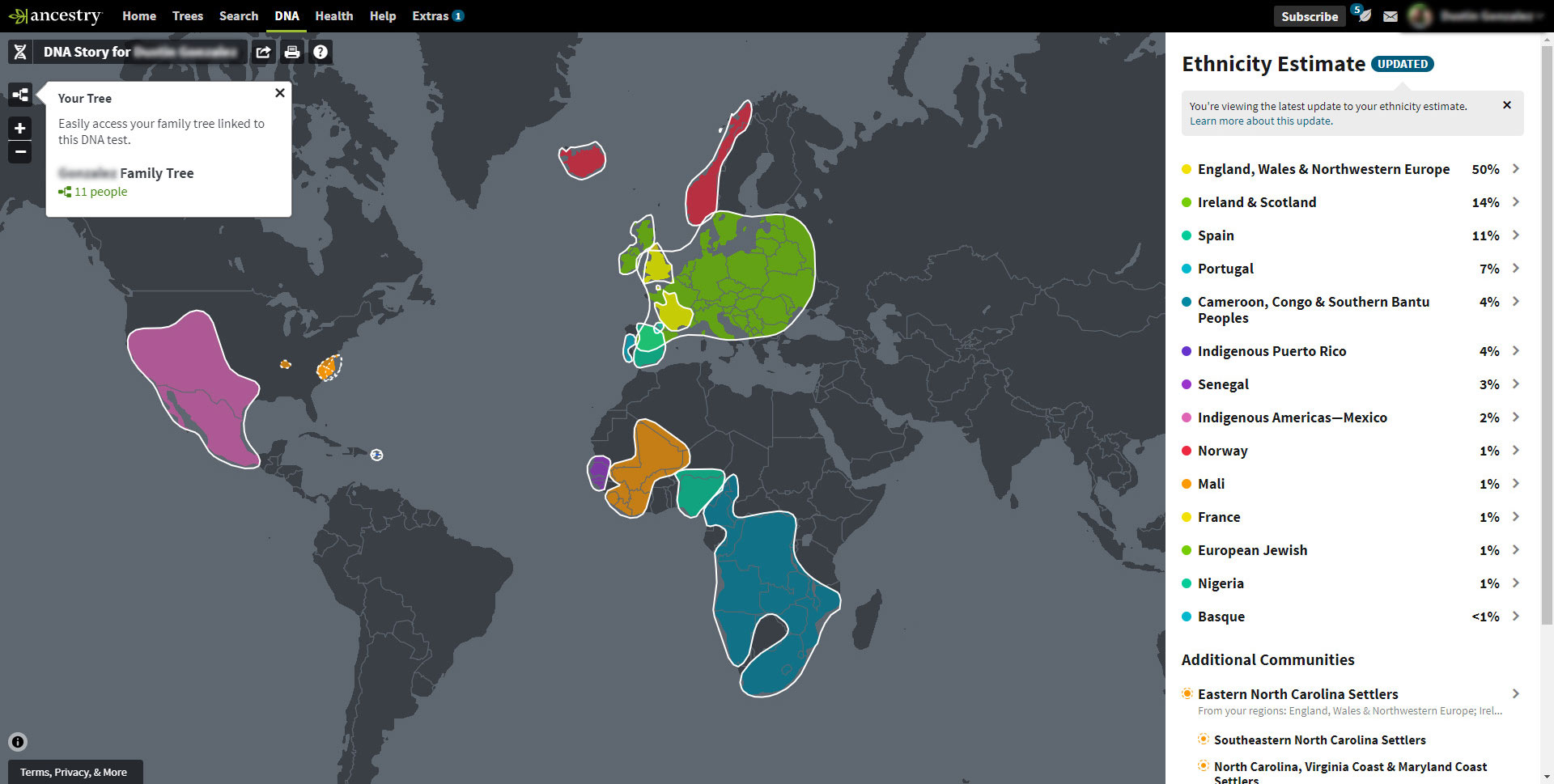
There are three different ways to test your ancestry:
Autosomal DNA: This test traces your genetic inheritance from the last five generations. It tells you about ancestry from both mother and father, since you inherit half your autosomal DNA from each parent. This means that you get a quarter from each grandparent, and therefore, autosomal DNA is hard to trace when you go back too many generations. This is the most common type of DNA testing, and it can help you identify relationships with cousins and determine your ethnicity.
Mitochondrial DNA (mtDNA): This is DNA from your mother’s side and traces the female line from mother to all her children.
Y-Chromosome DNA (Y-DNA): DNA from your father’s side; only biological males can give samples for a Y-DNA test. A female who wants to trace her paternal lineage needs to ask a male relative to take the test.
The benefit to mtDNA and Y-DNA tests is they go back much further than the five generations indicated in an autosomal test, allowing you to trace the migration paths of your ancestors. Depending on the company you use, the costs for these types of tests may be significantly higher.
Other key terms
Reference data set or population: A reference data set is a database of people with confirmed roots in specific countries. Information is drawn from both publicly available research and proprietary data.
Haplogroup: An ancestral clan, such as the Celts, Vikings or Native American tribes. Initially, there was only one haplogroup originating in Africa. As African tribes moved off the continent and gene mutation occurred, new haplogroups were formed.
Today’s known haplogroups are traced back to the earliest known person to carry the mutation, although we only know approximately where and when they lived and not identifying information, such as a name. There are also male and female haplogroups from each side of one family.
Haplogroups are named alphabetically in order of discovery, and sub-groups are named with letter and number combinations that indicate when they were discovered, which main haplogroup they descend from and sometimes a specific geographic area where the earliest members lived. The more letters and numbers in your haplogroup’s subgroup, the more detailed information you’ll have about distant ancestors.
What to expect
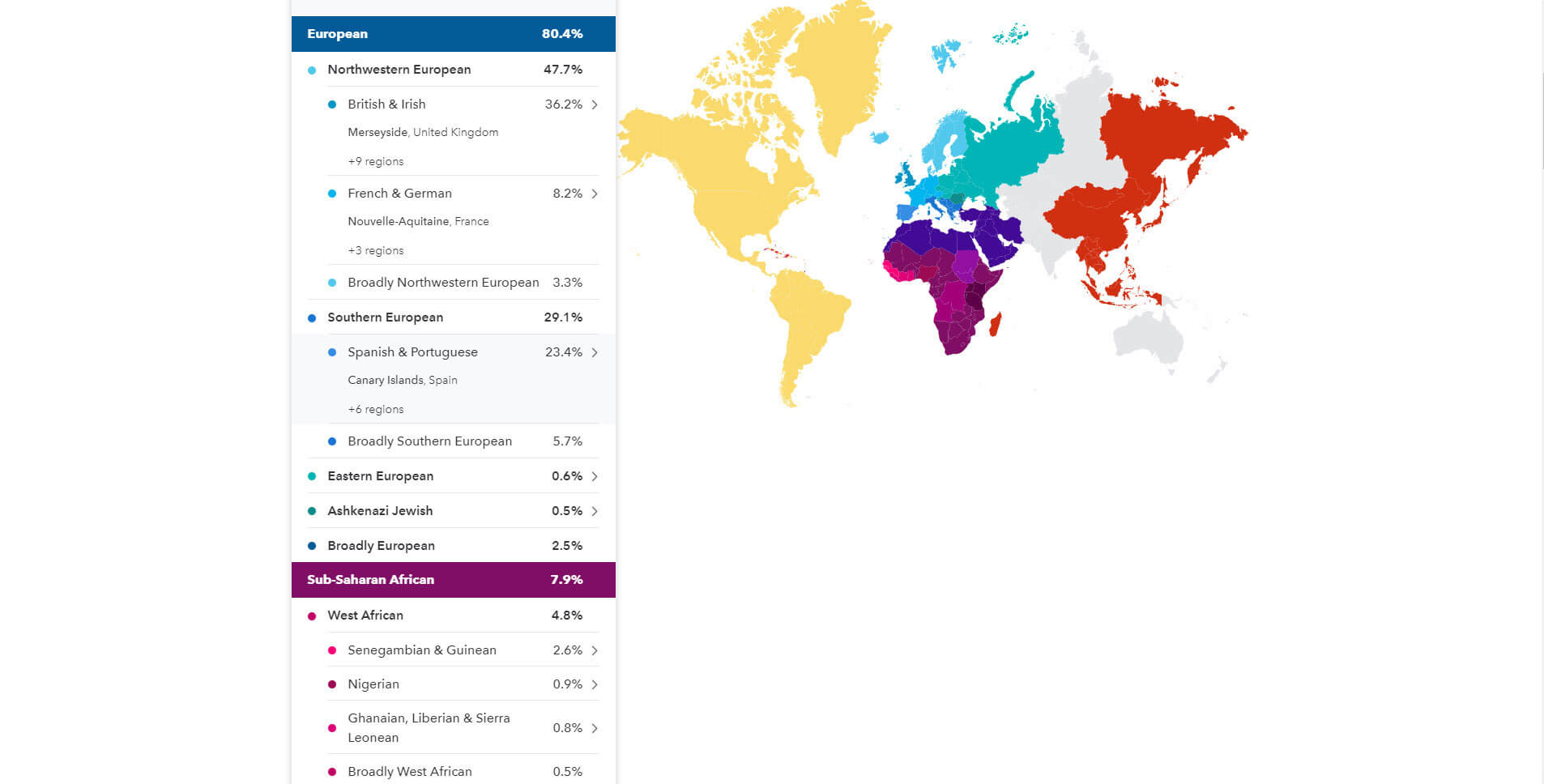
To determine where your ancestors might have lived 500 to 1,000 years ago, genetic genealogists look at a certain chunk of DNA and compare it against a reference data set. Each company uses its own algorithms to determine a probability for where your ancestors lived. Most of the time it won’t be an exact match. Since DNA testing companies use reference data to estimate your genealogy, hobbyist DNA results are most useful when used in conjunction with other genealogical tracing methods such as historical records.
Each company uses databases and algorithms that are proprietary and may give different results. The larger the database, the better able a company’s geneticists are to spot patterns. The database is pooled from independent research and self-reported data, with European populations making up the most-sampled group. Since broad ancestry data is limited, the results are far from perfect, especially if you come from a group with fewer samples, such as Native Americans.
Since most buyers are looking for detailed information rather than being lumped into an overly broad category, we sought out companies that had the most diverse databases. All of them are likely to run into diversity limitations in their reference population, but some have made concerted efforts to solve this problem. For example, African Ancestry claims exclusive rights to the largest database of individual African DNA sequences.
The bottom line
Knowing your goal when researching your ancestry will help you decide on the DNA testing company that will best meet your needs. If you want to find out your history on both sides of your family tree, 23andMe has an easy-to-use interface and provides clear, understandable results. If you want to find and connect with living relatives, AncestryDNA links you to the highest number of people with whom you share a common ancestry.
More Reviews
19 Long Flight Essentials to Carry On
Travel pillow
Igloo - Playmate 30 Can
The 10 Best Curling Irons for Thick Hair
BIO IONIC - Long Barrel Curling Iron 1.25' NanoIonic MX
The 8 Best Dog Shedding Brushes
Hertzko Self-Cleaning Brush
The 11 Best Fanny Packs & Belt Bags
Wandrd - Toiletry Bag in Medium
SmartCat - Ultimate Scratching Post
Serenilite
The Best Electric Toothbrushes
Greater Goods - Balance
ZFOsports





